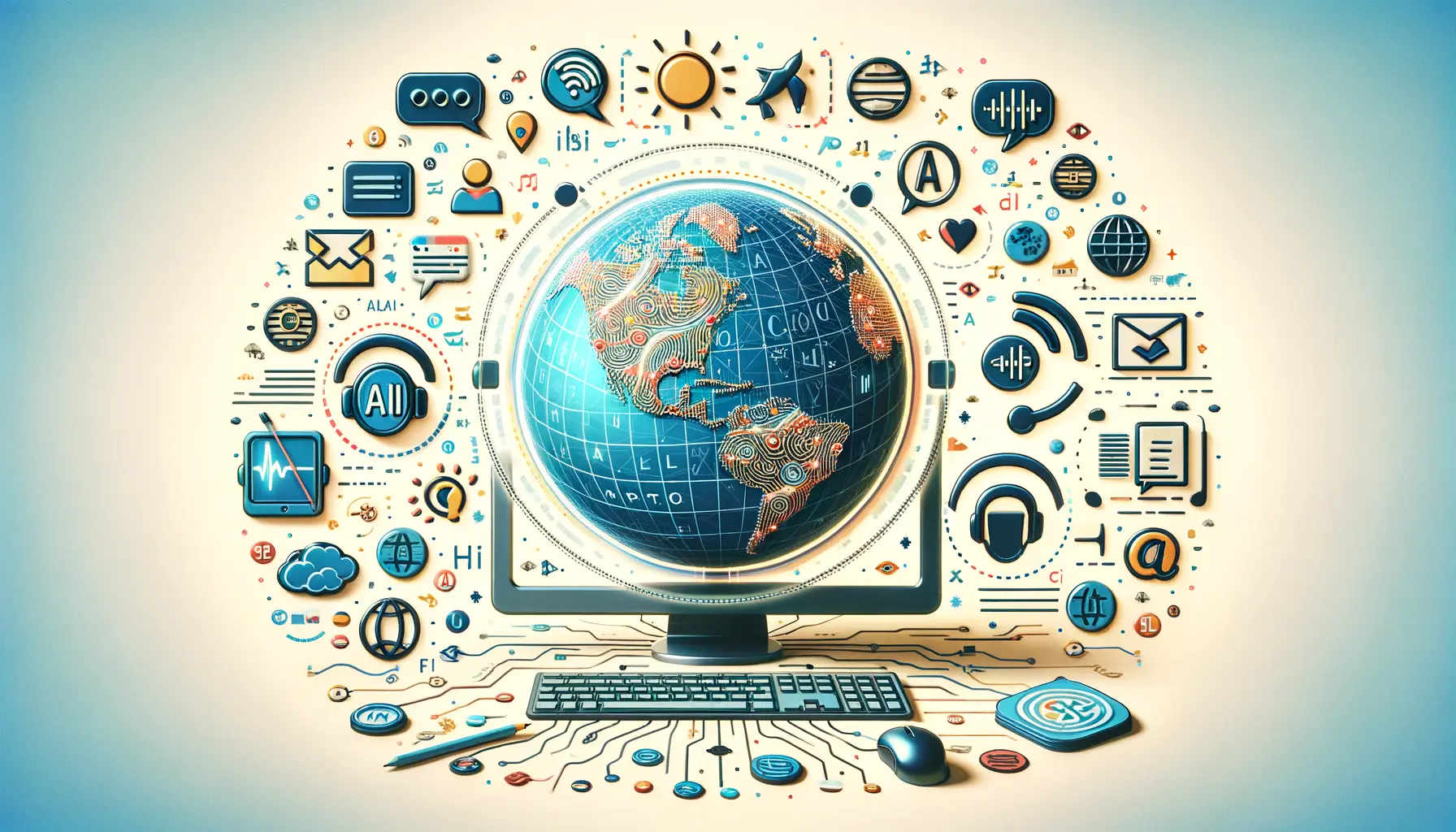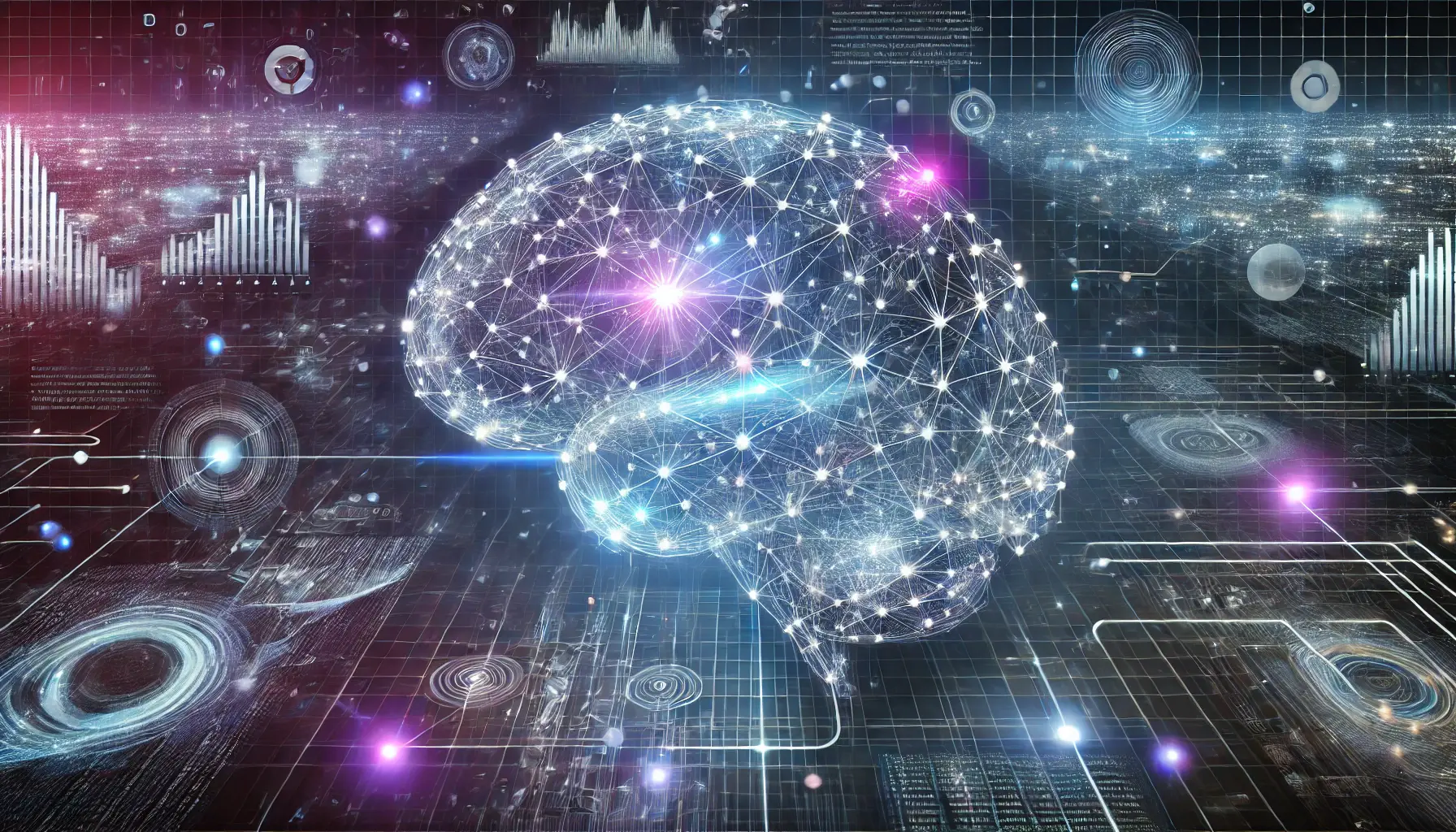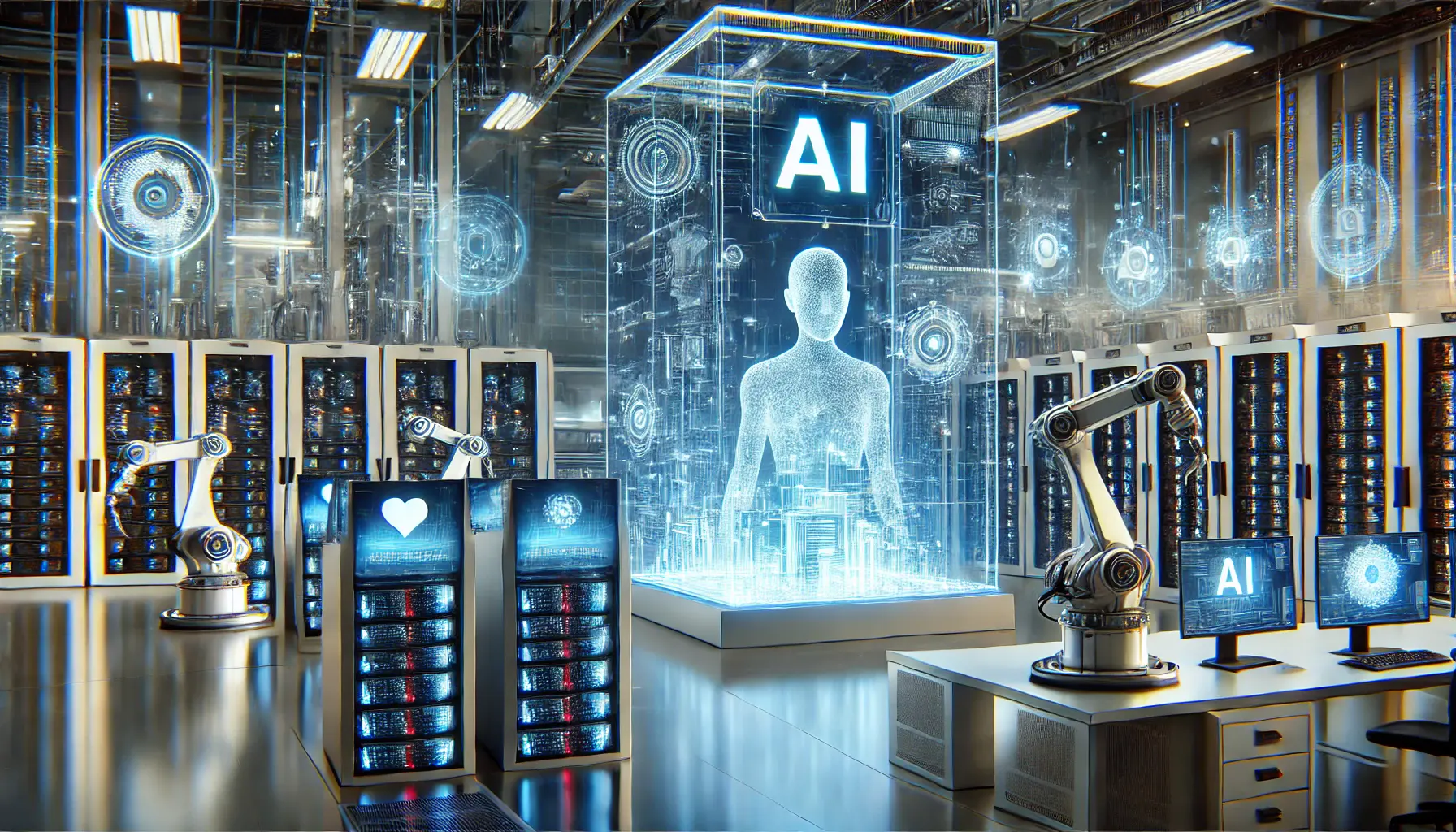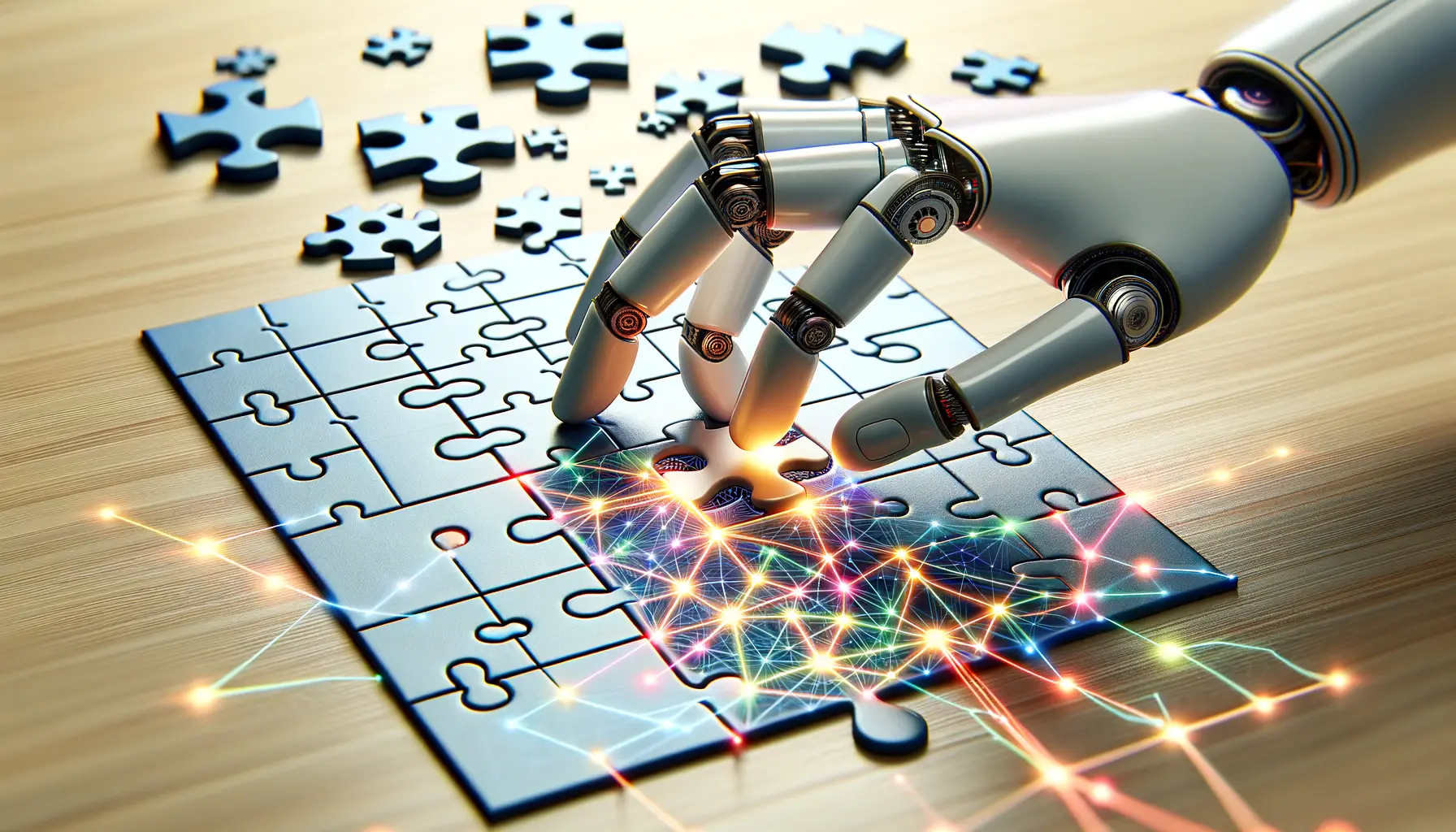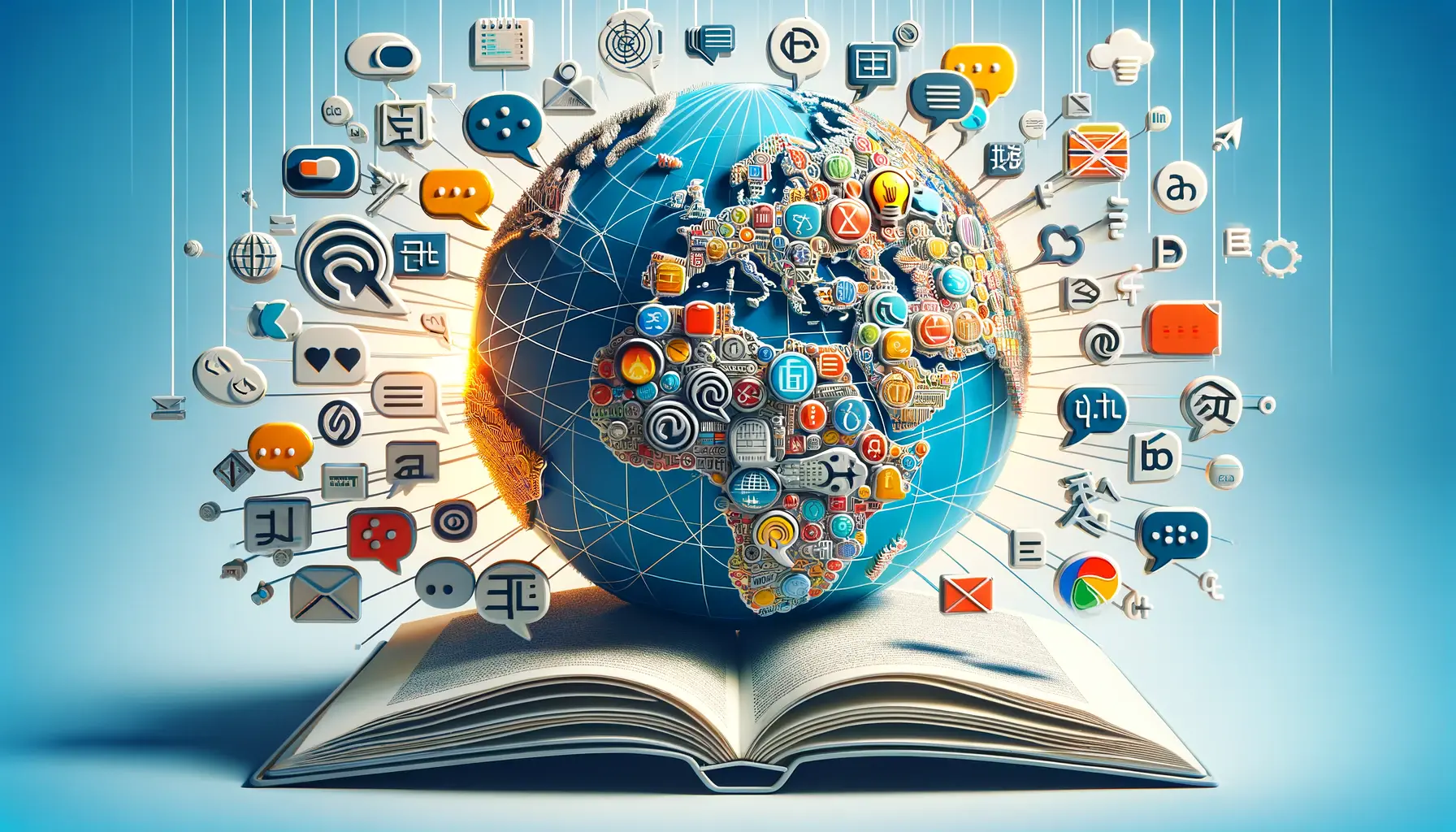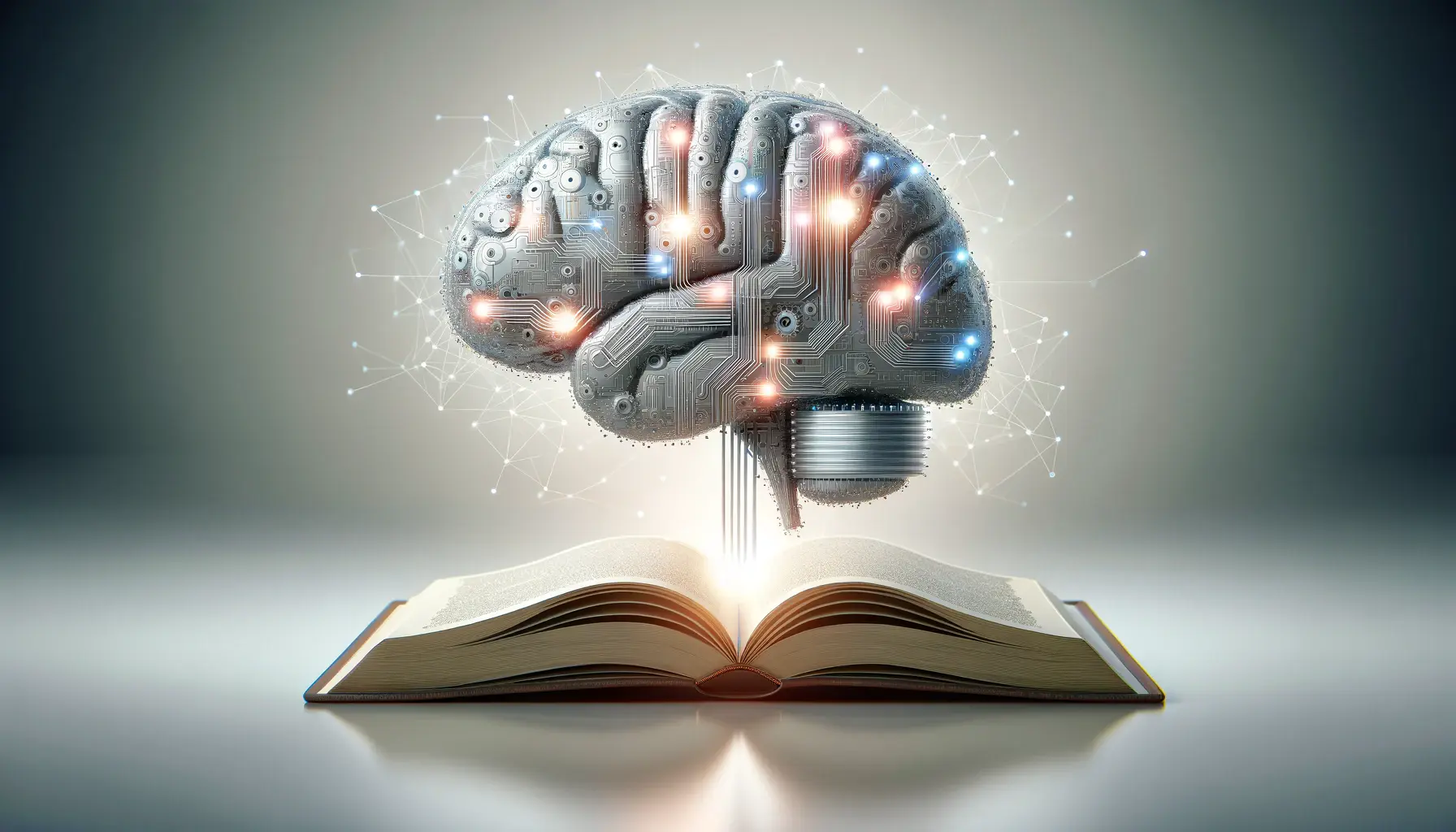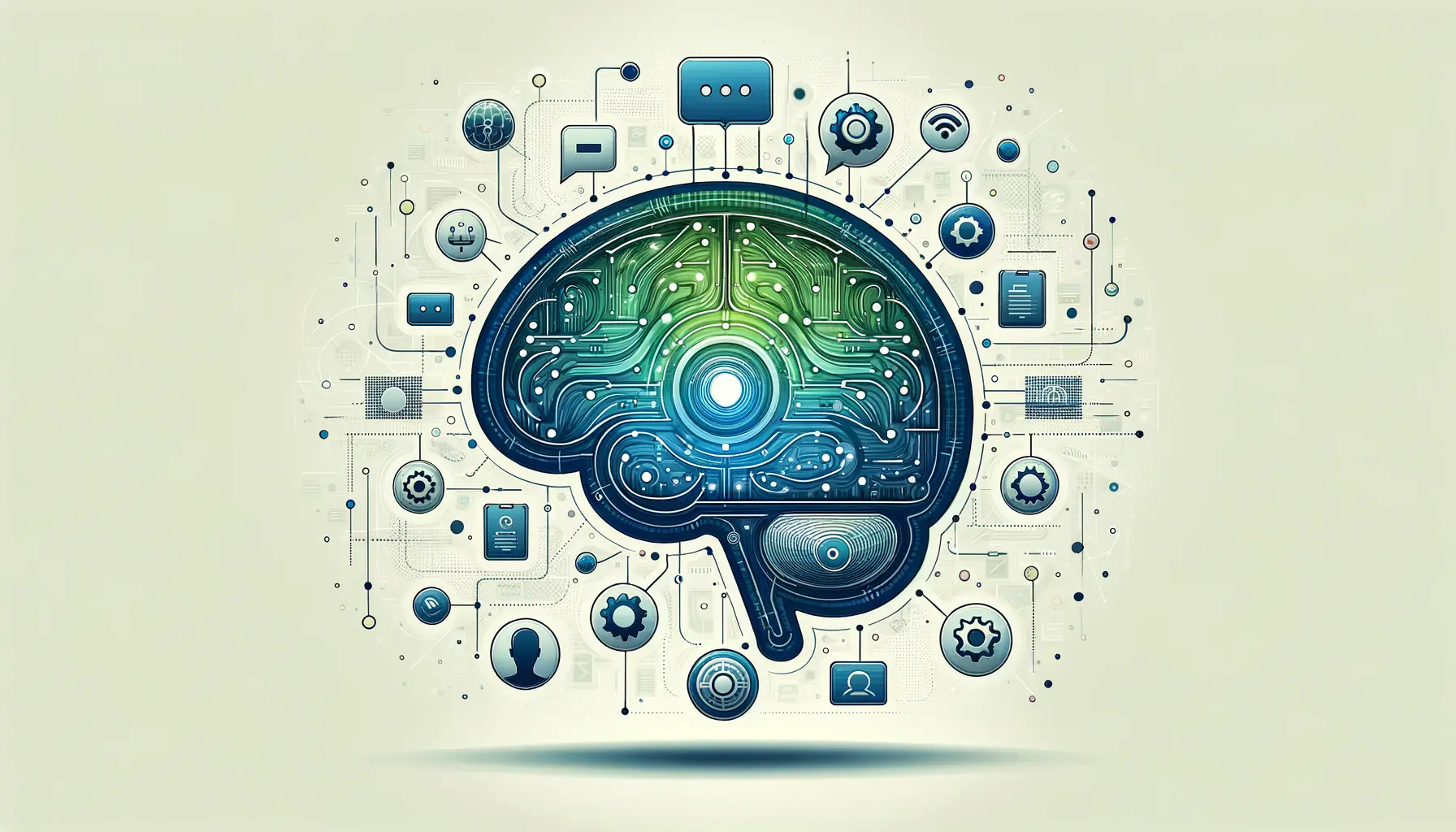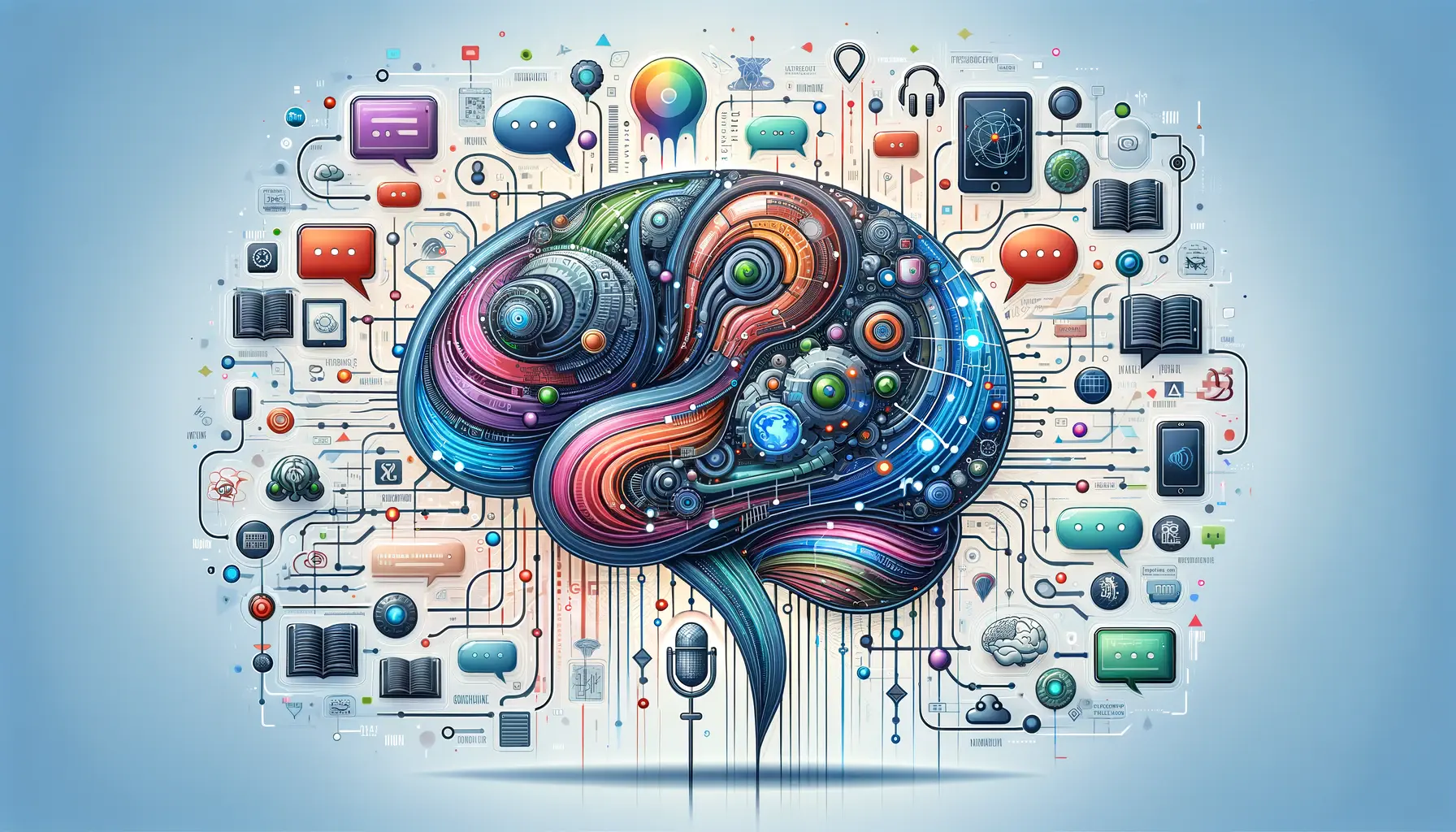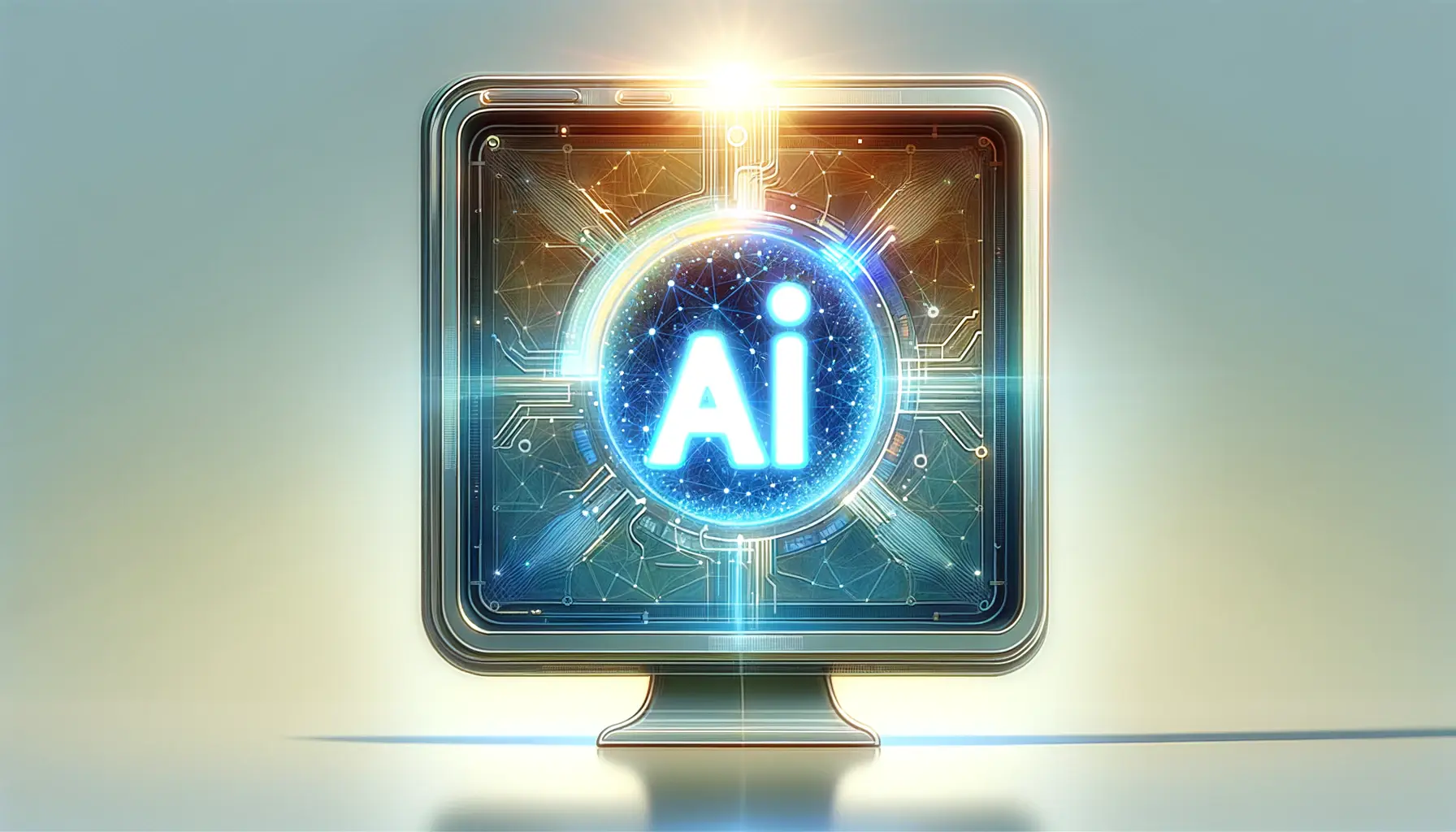In the rapidly evolving landscape of artificial intelligence, Claude AI emerges as a beacon of innovation, particularly in the realm of language translation.
This cutting-edge AI, developed by Anthropic, stands out for its remarkable ability to bridge language barriers, offering a seamless translation experience across a multitude of languages.
As businesses and individuals increasingly operate on a global scale, the demand for efficient and accurate translation services has never been higher.
Claude AI steps into this space with capabilities that promise to revolutionize how we communicate across linguistic divides.
At its core, Claude AI leverages advanced machine learning algorithms and natural language processing techniques to understand, interpret, and translate languages with an unprecedented level of nuance and accuracy.
This is not just about word-for-word translation; it’s about grasping the context, cultural nuances, and idiomatic expressions that are often lost in traditional translation methods.
In doing so, Claude AI not only facilitates communication but also fosters a deeper understanding and connection between people of different linguistic backgrounds.
- Understanding Claude AI’s Translation Mechanics
- The Role of Machine Learning in Enhancing Translation Accuracy
- Expanding Global Communication with Claude AI
- Customizing User Experience with Claude AI
- Integrating Claude AI into Multilingual Workflows
- Future Directions for Claude AI’s Translation Technology
- Challenges and Solutions in AI Translation
- Empowering Global Communication with Claude AI’s Translation Capabilities
- Claude AI’s Language Translation Capabilities: FAQs
Understanding Claude AI’s Translation Mechanics
The Foundation of Claude AI’s Language Abilities
Claude AI’s translation capabilities are rooted in its extensive training on diverse datasets, encompassing a wide range of languages and dialects.
This training involves analyzing vast amounts of text to learn the intricacies of each language, including grammar, syntax, and vocabulary.
By doing so, Claude AI develops a comprehensive understanding that goes beyond the surface level, enabling it to handle complex translation tasks with ease.
The AI’s ability to maintain context over the course of a conversation or document is particularly noteworthy.
This context-awareness ensures that translations are not only accurate on a sentence-by-sentence basis but also coherent and meaningful when considered as a whole.
Such depth of understanding is crucial for translating documents, conducting business negotiations, or providing customer support in multiple languages.
Breaking Down Language Barriers
One of the most significant challenges in language translation is dealing with idiomatic expressions and cultural nuances.
Claude AI addresses this challenge head-on by employing sophisticated algorithms that can interpret and translate idioms and cultural references appropriately.
This capability is a game-changer for industries such as tourism, entertainment, and international business, where understanding cultural context is as important as the language itself.
In addition to translating text, Claude AI is equipped to handle spoken language translation, thanks to its integration with speech recognition and synthesis technologies.
This feature opens up new possibilities for real-time translation in conversations, meetings, and conferences, making it easier for people to connect and collaborate regardless of their native language.
Claude AI’s translation capabilities extend beyond mere words to encompass cultural nuances and idiomatic expressions, ensuring translations are both accurate and culturally relevant.
- Extensive training on diverse datasets for deep language understanding
- Context-aware translations for coherence and relevance
- Advanced algorithms for idiomatic and cultural nuances
- Integration with speech technologies for real-time spoken language translation
The Role of Machine Learning in Enhancing Translation Accuracy
Machine learning stands at the heart of Claude AI’s translation services, driving the continuous improvement in accuracy and efficiency.
This technology enables Claude AI to learn from its interactions, adapting and refining its translation models based on real-world usage.
The implications of this learning process are profound, as it allows for translations that are not only precise but also tailored to the specific needs and contexts of its users.
Through the application of deep learning techniques, Claude AI can analyze patterns and correlations in language data, making informed predictions about the most appropriate translations in various contexts.
This capability is crucial for maintaining the subtlety and intent of the original message, a common challenge in translation that Claude AI navigates with remarkable finesse.
Continuous Learning for Unparalleled Accuracy
The iterative learning process of Claude AI is what sets it apart from traditional translation tools.
Each translation task it undertakes is an opportunity to refine its understanding and improve future performance.
This approach ensures that Claude AI’s translations become more accurate and natural over time, benefiting from the vast and ever-growing corpus of language data it processes.
Moreover, Claude AI’s machine learning framework allows it to recognize and adapt to different dialects and linguistic styles.
This adaptability is essential for providing personalized translation experiences, catering to the unique language preferences of each user.
Overcoming Translation Challenges with Advanced Algorithms
Claude AI’s advanced algorithms are specifically designed to tackle the intricacies of language translation.
These algorithms enable Claude AI to understand context, manage ambiguities, and preserve the original tone and style of the text.
Whether it’s translating technical documents, literary works, or casual conversations, Claude AI’s algorithms ensure that the essence of the message is conveyed accurately.
Furthermore, these algorithms are instrumental in Claude AI’s ability to handle multilingual translations efficiently.
By leveraging state-of-the-art machine learning models, Claude AI can seamlessly translate between multiple languages in real-time, facilitating smooth and effective communication across language barriers.
Machine learning is the cornerstone of Claude AI’s translation capabilities, enabling continuous improvement and personalization in translation accuracy.
- Adaptation and refinement through real-world interactions
- Deep learning for nuanced understanding and predictions
- Personalized translations through dialect and style recognition
- Efficient multilingual translation with advanced algorithms
Expanding Global Communication with Claude AI
The advent of Claude AI’s translation capabilities heralds a new era in global communication, breaking down language barriers that have historically hindered cross-cultural interaction and business expansion.
By providing accurate, context-aware translations in real-time, Claude AI enables individuals and organizations to communicate effectively with partners, customers, and colleagues around the world, regardless of language differences.
This breakthrough in AI-driven translation services is particularly transformative for industries such as international trade, global customer service, and multilingual content creation.
Claude AI not only facilitates smoother transactions and interactions but also helps in building stronger, more meaningful relationships across cultural divides.
Enhancing International Trade and Business
In the realm of international trade and business, communication clarity and accuracy are paramount.
Misunderstandings due to poor translation can lead to lost deals, damaged relationships, and significant financial repercussions.
Claude AI mitigates these risks by ensuring that business documents, negotiations, and communications are translated with high accuracy and cultural sensitivity.
This capability empowers businesses to expand their operations into new markets with confidence, knowing that language will not be a barrier to their success.
Moreover, Claude AI’s ability to learn and adapt to specific industry terminologies makes it an invaluable tool for businesses operating in specialized fields.
Whether it’s legal, medical, or technical sectors, Claude AI can provide translations that are not only linguistically correct but also contextually appropriate for the industry.
Revolutionizing Global Customer Service
Global customer service faces the challenge of providing timely and accurate support to customers from diverse linguistic backgrounds.
Claude AI transforms this aspect of business by enabling customer service teams to communicate with customers in their native languages, enhancing the customer experience and satisfaction.
This level of service personalization was previously unattainable at scale and represents a significant competitive advantage for businesses that adopt Claude AI.
Additionally, Claude AI’s translation capabilities extend to automated customer service solutions, such as chatbots and virtual assistants.
By integrating Claude AI, these tools can offer multilingual support 24/7, ensuring that businesses are always ready to assist their customers, anytime and anywhere.
Claude AI’s impact on global communication extends beyond translation, fostering deeper understanding and connections across cultures.
- Facilitating clear and accurate international business communications
- Adapting to industry-specific terminologies for relevant translations
- Enhancing customer service with personalized, multilingual support
- Enabling round-the-clock automated customer assistance in multiple languages
Customizing User Experience with Claude AI
The power of Claude AI extends into the realm of personalized user experiences, setting a new standard for how AI can adapt to individual language preferences and styles.
This customization is not just about translating languages but about tailoring the communication to resonate with the user on a personal level.
Claude AI achieves this through its advanced understanding of linguistic nuances and user interaction patterns, making each translation not only accurate but also uniquely suited to the individual.
Such personalized experiences are crucial in today’s global digital landscape, where users expect services to understand and cater to their specific needs and preferences.
Claude AI’s capabilities enable it to meet these expectations, providing a seamless and engaging user experience across different languages and cultures.
Adapting to Linguistic Styles and Preferences
Claude AI’s sophisticated algorithms analyze user interactions to identify and adapt to their linguistic styles and preferences.
This means that whether a user prefers formal or informal language, uses specific idioms, or has unique expressions, Claude AI can adjust its translations accordingly.
This level of personalization enhances the naturalness and relatability of the communication, making digital interactions more engaging and effective.
Furthermore, this adaptability is not static; Claude AI continuously learns from each interaction, refining its understanding of the user’s preferences over time.
This dynamic learning process ensures that the AI’s translations remain aligned with the evolving language use of each individual, providing a truly personalized experience.
Enhancing Multilingual Content Creation
For content creators operating in a multilingual world, Claude AI offers powerful tools to customize content for different linguistic audiences.
By understanding the cultural and linguistic nuances of each target audience, Claude AI can help creators adapt their messages to be more relevant and impactful across languages.
This capability is invaluable for businesses and creators looking to connect with a global audience while maintaining the authenticity and integrity of their content.
Whether it’s localizing marketing materials, adapting stories for different cultural contexts, or ensuring that educational content is accessible to learners of different languages, Claude AI’s customization features make it an essential tool for multilingual content creation.
Personalization through Claude AI goes beyond translation, offering customized experiences that respect linguistic styles, preferences, and cultural nuances.
- Dynamic adaptation to individual linguistic styles and preferences
- Continuous learning from user interactions for improved personalization
- Tools for creators to tailor content for multilingual audiences
- Capability to maintain content authenticity across languages
Integrating Claude AI into Multilingual Workflows
The integration of Claude AI into multilingual workflows represents a significant leap forward in operational efficiency and global collaboration.
By automating the translation process within various business operations, Claude AI not only speeds up communication but also ensures consistency and accuracy across all languages involved.
This integration is particularly beneficial for multinational corporations, global teams, and online platforms seeking to streamline their workflows and enhance productivity.
From document translation and customer support to internal communication and content management, Claude AI’s versatile application across different workflows demonstrates its potential to transform global business practices.
Streamlining Document Translation Processes
Document translation is a critical task for many businesses operating on an international scale.
Claude AI automates this process, translating documents quickly and accurately, which is essential for legal contracts, technical manuals, marketing materials, and more.
By integrating Claude AI, businesses can ensure that their documents are consistently translated, maintaining the integrity of the original content while making them accessible to a global audience.
This automation not only saves significant time and resources but also reduces the risk of errors that can occur with manual translation processes.
The result is a more efficient workflow that can keep pace with the demands of international business operations.
Enhancing Global Team Collaboration
Global teams often face challenges in communication due to language barriers.
Claude AI facilitates seamless collaboration among team members from different linguistic backgrounds by providing real-time translation for emails, messages, and documents.
This capability ensures that all team members can participate fully and equally in discussions, decision-making, and project management, regardless of their native language.
The impact of this on team dynamics and productivity cannot be overstated.
With Claude AI, language differences become an opportunity for diversity and inclusion rather than a barrier to collaboration.
Optimizing Multilingual Content Management
For online platforms and content creators, managing content in multiple languages is a daunting task.
Claude AI simplifies this process by offering tools for automatic translation, localization, and content adaptation.
This not only makes the content more accessible to a wider audience but also ensures that it resonates with them on a cultural level.
By integrating Claude AI into content management systems, platforms can efficiently manage their multilingual content, keeping it consistent, relevant, and engaging across different languages and regions.
Integrating Claude AI into multilingual workflows streamlines operations, enhances global collaboration, and optimizes content management for a worldwide audience.
- Automating document translation for efficiency and accuracy
- Facilitating communication and collaboration in global teams
- Simplifying multilingual content management and localization
Future Directions for Claude AI’s Translation Technology
The evolution of Claude AI’s translation technology is poised to continue at a rapid pace, driven by advancements in artificial intelligence and machine learning.
As we look to the future, several key areas are likely to see significant development, further enhancing Claude AI’s capabilities and its impact on global communication.
These future directions not only promise to improve the accuracy and efficiency of translations but also to expand the range of languages supported and the depth of cultural understanding.
This forward momentum is crucial for keeping pace with the growing demand for seamless, accurate translation services in an increasingly interconnected world.
Expanding Language Coverage
One of the primary goals for the future of Claude AI is to increase the number of languages it supports.
This expansion will enable broader global access to Claude AI’s translation services, making it an even more valuable tool for individuals and businesses around the world.
By incorporating more languages, especially those that are currently underrepresented in digital translation services, Claude AI can play a pivotal role in bridging communication gaps and fostering inclusivity.
Efforts to include regional dialects and minority languages will further enhance Claude AI’s ability to deliver nuanced, culturally sensitive translations, making global communication more accessible and equitable.
Enhancing Real-Time Translation Capabilities
Improving real-time translation capabilities is another critical area of focus.
As the world becomes more connected, the need for instant translation in live conversations, meetings, and conferences grows.
Future versions of Claude AI aim to deliver even faster, more accurate real-time translations, facilitating effortless communication between people speaking different languages.
This advancement will be particularly impactful in international diplomacy, global business negotiations, and multicultural events, where understanding and clarity are paramount.
Deepening Cultural Contextualization
Beyond translating words, future iterations of Claude AI will place a greater emphasis on cultural contextualization.
This involves not just translating the language but also adapting content to reflect cultural norms, values, and sensitivities.
Such deep contextualization will ensure that translations are not only linguistically accurate but also culturally appropriate, enhancing the relevance and effectiveness of cross-cultural communication.
By integrating more sophisticated cultural analysis algorithms, Claude AI will be able to navigate complex cultural nuances with greater precision, enriching the global exchange of ideas and information.
The future of Claude AI’s translation technology is not just about adding more languages but about deepening the understanding and contextualization of translations for richer, more meaningful global interactions.
- Broader language support for global inclusivity
- Advanced real-time translation for live communication
- Cultural contextualization for relevant and sensitive translations
Challenges and Solutions in AI Translation
Despite the groundbreaking advancements in AI translation exemplified by Claude AI, several challenges remain.
These hurdles stem from the inherent complexities of language and communication, including idiomatic expressions, cultural nuances, and contextual relevance.
Addressing these challenges is crucial for further refining AI translation technologies and ensuring they meet the diverse needs of global users.
However, with every challenge comes a solution.
The AI community, including the developers behind Claude AI, is continuously working on innovative approaches to overcome these obstacles, pushing the boundaries of what AI can achieve in the realm of language translation.
Overcoming Idiomatic and Cultural Nuances
One of the most significant challenges in AI translation is accurately capturing idiomatic expressions and cultural nuances.
These elements of language are deeply rooted in the cultural and historical context of a community, making them particularly difficult for AI to interpret and translate correctly.
The solution lies in enhancing the AI’s training datasets to include a broader range of cultural and idiomatic expressions, coupled with advanced algorithms capable of understanding context and inferring meaning.
Additionally, involving linguistic experts in the development process can provide the AI with insights into the subtleties of language that are difficult to capture through data alone.
This human-in-the-loop approach ensures that translations are not only accurate but also culturally sensitive.
Ensuring Contextual Relevance
Another challenge is maintaining the contextual relevance of translations across different domains and subjects.
This requires the AI to not only understand the language but also the subject matter it is translating.
The solution involves developing domain-specific models that are trained on specialized datasets, enabling the AI to grasp the context and terminology unique to different fields, such as legal, medical, or technical texts.
Implementing machine learning techniques that allow the AI to learn from context and adjust its translations accordingly can also enhance contextual relevance.
This adaptive learning approach ensures that the AI’s translations remain accurate and relevant, even as the context changes.
Addressing Ambiguity and Polysemy
Language is inherently ambiguous, with many words and phrases having multiple meanings depending on the context (polysemy).
Tackling this challenge requires AI to not only analyze the text but also understand the broader context in which it is used.
Leveraging natural language understanding (NLU) technologies and contextual analysis algorithms can help AI distinguish between different meanings and choose the most appropriate translation.
Continuous feedback loops, where the AI learns from corrections and adjustments made by users, can further refine its ability to deal with ambiguity and polysemy, improving translation accuracy over time.
Innovative solutions, including enhanced training datasets, domain-specific models, and human-in-the-loop approaches, are key to overcoming the challenges in AI translation, paving the way for more accurate, culturally sensitive, and contextually relevant translations.
- Expanding training datasets for idiomatic and cultural nuances
- Developing domain-specific models for contextual relevance
- Utilizing NLU technologies for ambiguity and polysemy
- Leveraging human expertise for cultural sensitivity
Empowering Global Communication with Claude AI’s Translation Capabilities
The journey through Claude AI’s language translation capabilities reveals a future where language barriers are no longer an obstacle to global communication and understanding.
Claude AI, with its advanced machine learning algorithms and deep understanding of linguistic nuances, stands at the forefront of this transformative era.
Its ability to deliver accurate, context-aware, and culturally sensitive translations is not just an advancement in technology but a leap towards fostering global connections and empathy.
The Path Forward for AI-Driven Translation
As we look ahead, the potential for Claude AI to expand its linguistic repertoire and enhance real-time translation capabilities is immense.
The focus on expanding language coverage, improving real-time translation, and deepening cultural contextualization underscores a commitment to making AI-powered translation more inclusive, responsive, and attuned to the rich tapestry of human languages and cultures.
These future directions promise to make Claude AI an even more indispensable tool for individuals and businesses around the world, enabling them to navigate the complexities of global communication with ease and confidence.
Addressing Challenges with Innovative Solutions
The road to perfecting AI translation is fraught with challenges, from capturing the subtleties of idiomatic expressions to ensuring translations are contextually relevant and culturally appropriate.
However, the innovative solutions being developed—ranging from enhanced training datasets to domain-specific models and human-in-the-loop approaches—highlight the AI community’s dedication to overcoming these obstacles.
By continuously refining Claude AI’s capabilities through advanced algorithms, extensive data analysis, and human expertise, we are moving closer to a world where AI can translate not just words, but the very essence of human thought and culture.
- Expanding Claude AI’s language support to include more global languages and dialects
- Enhancing real-time translation for seamless, instant communication
- Deepening the integration of cultural nuances for more meaningful translations
- Developing innovative solutions to tackle idiomatic, contextual, and cultural challenges in translation
In conclusion, Claude AI’s language translation capabilities represent a significant stride towards eliminating linguistic barriers that have historically divided us.
By harnessing the power of AI, we are not only enhancing our ability to communicate across languages but also deepening our understanding of one another.
As Claude AI continues to evolve, it promises to play a pivotal role in shaping a more connected, empathetic, and inclusive global community.
Claude AI’s Language Translation Capabilities: FAQs
Explore common inquiries about Claude AI’s transformative approach to language translation.
Yes, Claude AI specializes in translating multiple languages, leveraging advanced algorithms for accuracy and cultural nuance.
Beyond English, Claude AI excels in Portuguese, French, and German, offering nuanced translations across these languages.
Yes, Claude AI provides real-time translation of text, enabling seamless communication across different languages.
Claude AI can summarize and translate documents, making it a versatile tool for various translation tasks.
Yes, Claude AI performs well in a range of common languages, with a strong training foundation in English.
Absolutely, Claude AI’s patient and adaptive nature makes it an excellent tool for language learners seeking practice and improvement.
Claude AI uses Constitutional AI techniques for nuanced understanding and translation across languages.
Claude AI’s API is currently available to a limited set of customers and researchers, with plans for broader access.
